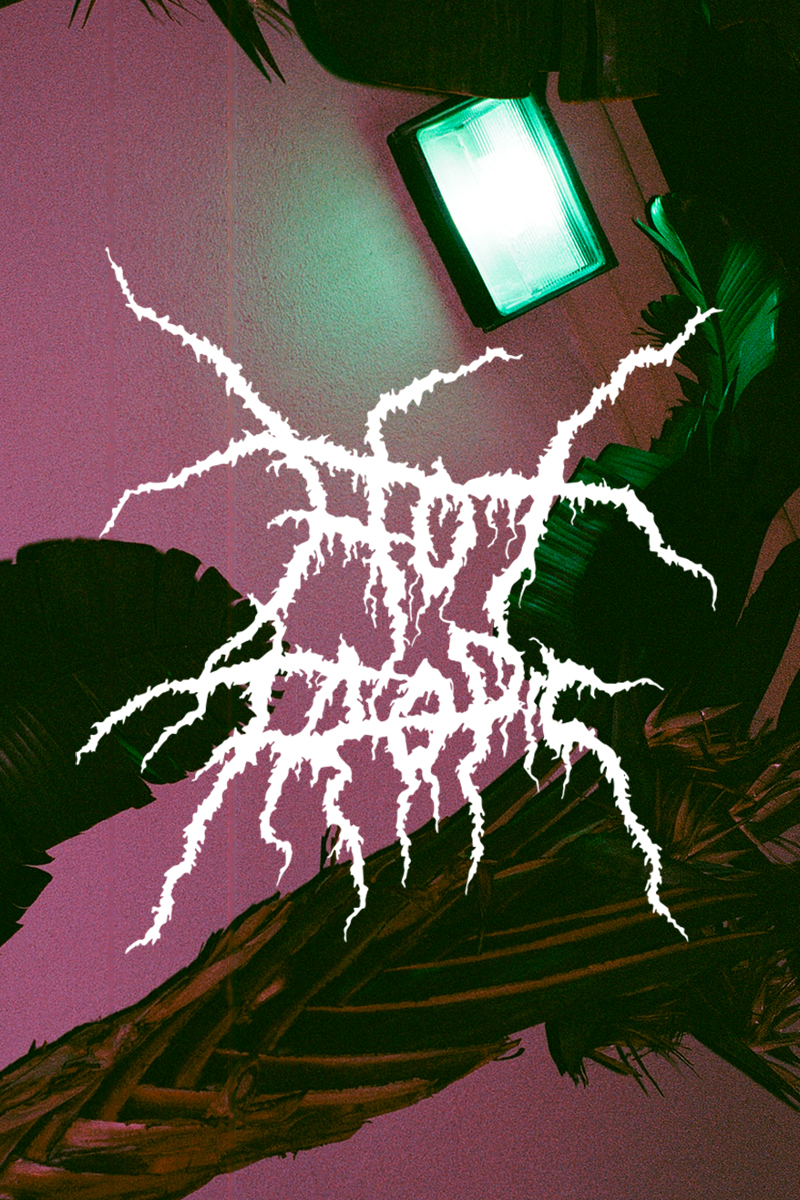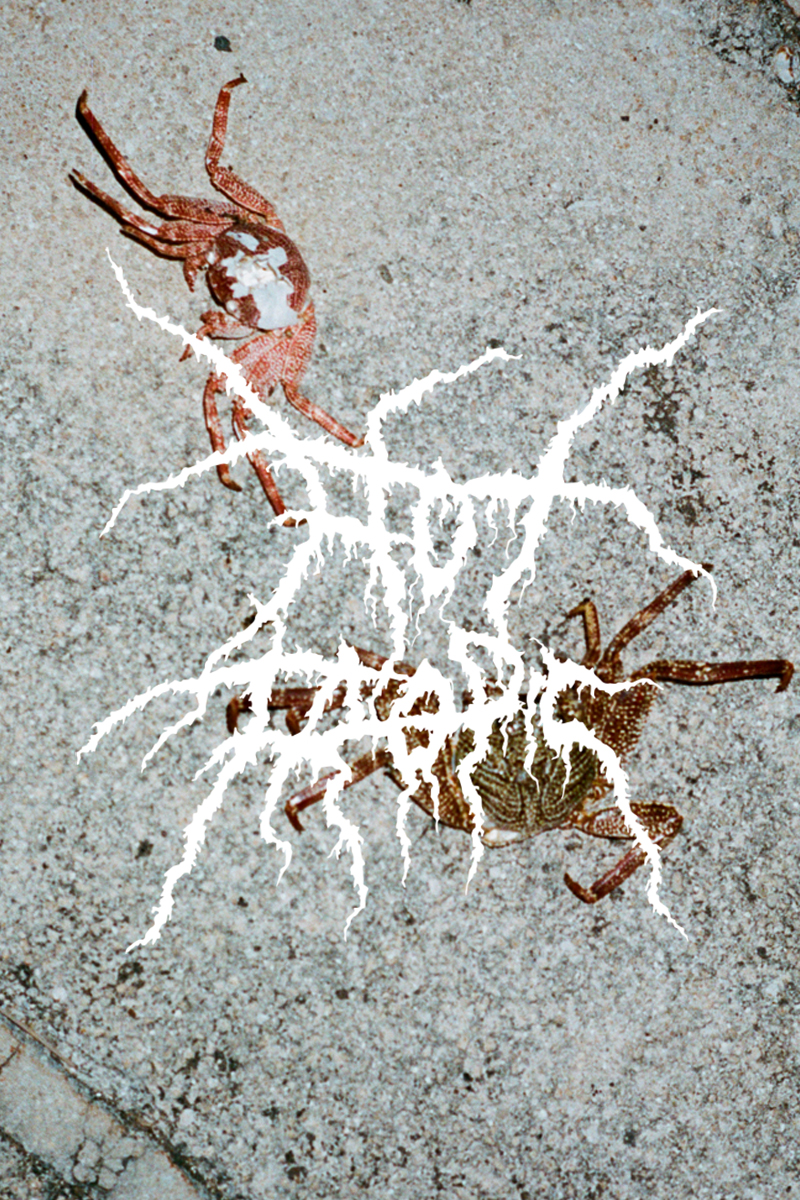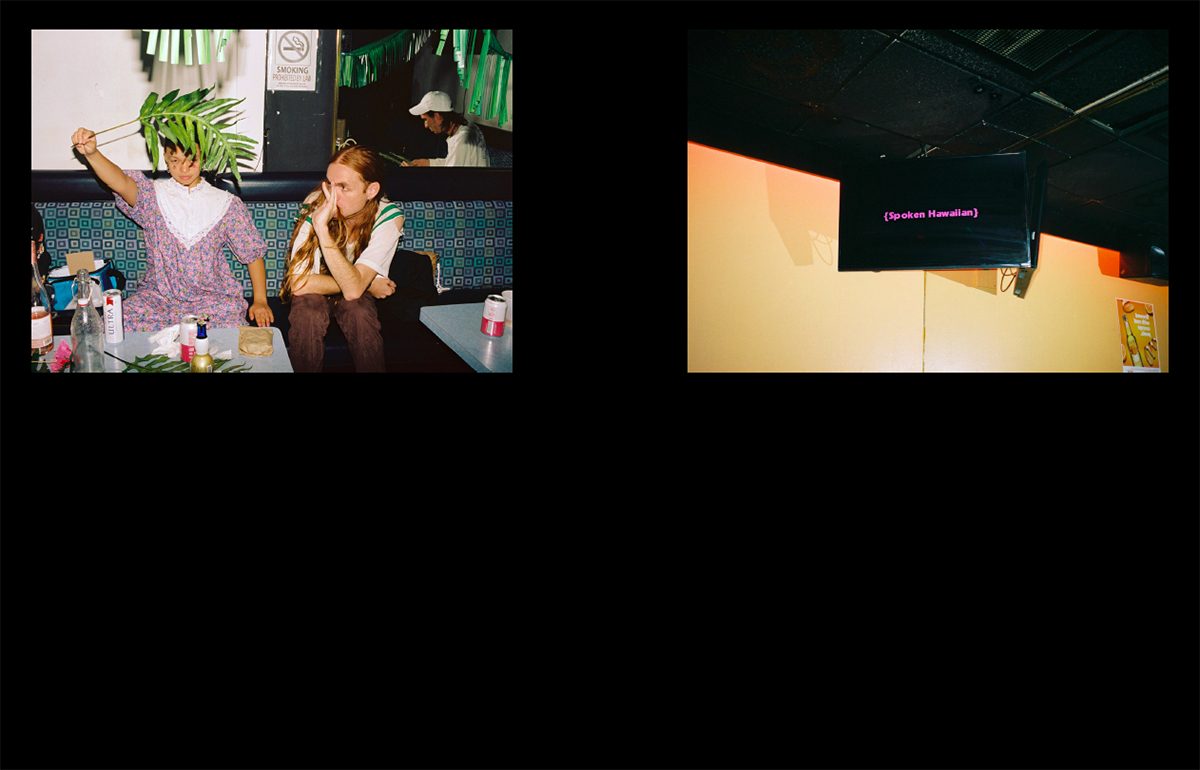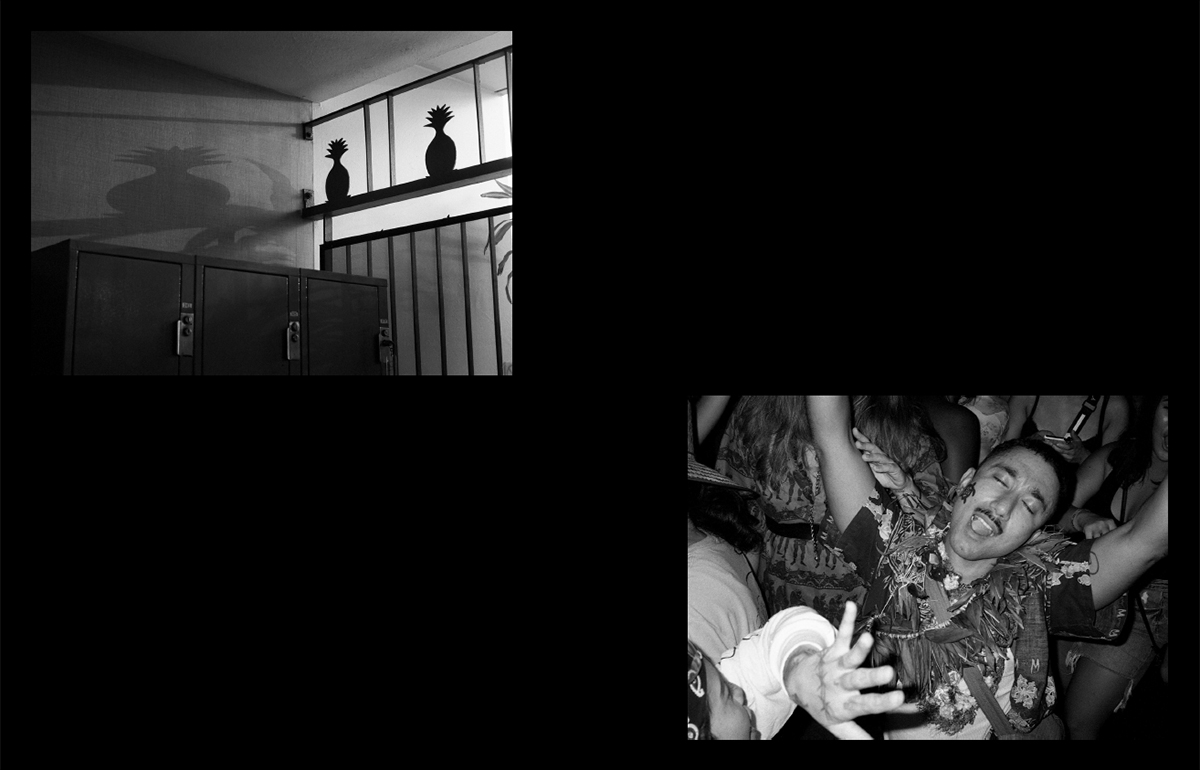HOT TROPIC



Hot Tropic is a book of photographs by Jason Chu exploring the macabre side of the tropics. Over the course of nine months, this thematic lens directed the way images were shot, collected, and compiled. The print publication is the summation (or a summation, of many possible outcomes) of the editorial project. The noise of dystopic island rage, the blinding heat of a clear blue sky, and the unsettling energy of a twisted, paradisical fantasy are all elements in a shadow world these images inhabit.
![]()
![]()
In the imaginary of the gothic landscape, we envision cold, empty, dark spaces. From Edgar Allen Poe to Edward Scissorhands, gothic culture has long been associated with whiteness and European places, its origin stories locked up in the stone castles of the Middle Ages, wracked with plague and cruelty, the twisted horror of Grimm fairytales, the porcelain white skin of Victorian vampires. Hot Tropic challenges the eurocentrism of the gothic by employing it as a lens by which to observe, record, and reimagine, Hawaii.
The humid, dense environments of the tropics are riddled with the waste and excess of a colonial history rooted in death. These are landscapes physically marked by the dual, simultaneous violence of the military-industrial complex and the booming tourism industry. Hawaii’s concrete jungle is built on, literally, the genocide of its people. It remains physically haunted and disoriented by this past. The project mobilizes these histories of place, highlighting (or shadowing) the confusing, chaotic contradictions that already exists in our relationship to the built and unbuilt world around us. If you turn on your flash at night on a beach in Waikiki, this is what you’d find before it scuttles away.
The project also draws on the term ecogothic, referring to ecology rooted in a reaction of fear, horror, or unease to the environment. Ecogothic reveres the chaos of our immediate ecological crisis. Rather than Hansel and Gretel, lost in the forests of medieval Europe after their starving family abandoned them, it’s a masked, devil-worshipping bellboy at the Moana Surfrider, it’s a group of costumed misfits at Ice Palace, it’s a lone goth rocker lost in the aisles of an ABC store, comparing sunscreens. It’s a world in which we are already at least six feet apart, but we are also already contaminated.
Hot Tropic is a group endeavor, drawing on its theme to bring together similarly minded people. While driven by aesthetic considerations, the project facilitated gatherings that were always more than photoshoots — in its best moments, they allowed alienated individuals a sense of solidarity in these temporary moments of communion. Acquaintances became friends, who became collaborators, and they found solace in being alone, together.
![]()
![]()
Hot Tropic is, of course, also a playful homage to Hot Topic: that distorted mirror of mass-marketed, branded rock culture. The store took diverse iterations of goth and rock music and distilled them into a clunky, monolithic subculture consumable with enough repeat visits. It’s where the term Mall Goth grew teeth. We recognize Hot Topic’s place in this mess of late capitalism, and plus, working there in high school is an experience that many of us share in our respective local malls.
A sincere thank you to the following contributors and collaborators, some of whom appear in this publication: Bradley Rhea, Risa Hoshino, Andrea Rodriguez, Donnie Cervantes, Nate Sarsona, Jenny Liang, Davey Shindig, e-nico, Tamiko Hobin, Jamahia Robinson, Drew Broderick, Lise Michelle, Juvana Soliven, Tomoki Kobayashi, Julia Cornell, Angel Renato, Riki Shae, Josh Tengan, Tobangus.


In the imaginary of the gothic landscape, we envision cold, empty, dark spaces. From Edgar Allen Poe to Edward Scissorhands, gothic culture has long been associated with whiteness and European places, its origin stories locked up in the stone castles of the Middle Ages, wracked with plague and cruelty, the twisted horror of Grimm fairytales, the porcelain white skin of Victorian vampires. Hot Tropic challenges the eurocentrism of the gothic by employing it as a lens by which to observe, record, and reimagine, Hawaii.
The humid, dense environments of the tropics are riddled with the waste and excess of a colonial history rooted in death. These are landscapes physically marked by the dual, simultaneous violence of the military-industrial complex and the booming tourism industry. Hawaii’s concrete jungle is built on, literally, the genocide of its people. It remains physically haunted and disoriented by this past. The project mobilizes these histories of place, highlighting (or shadowing) the confusing, chaotic contradictions that already exists in our relationship to the built and unbuilt world around us. If you turn on your flash at night on a beach in Waikiki, this is what you’d find before it scuttles away.
The project also draws on the term ecogothic, referring to ecology rooted in a reaction of fear, horror, or unease to the environment. Ecogothic reveres the chaos of our immediate ecological crisis. Rather than Hansel and Gretel, lost in the forests of medieval Europe after their starving family abandoned them, it’s a masked, devil-worshipping bellboy at the Moana Surfrider, it’s a group of costumed misfits at Ice Palace, it’s a lone goth rocker lost in the aisles of an ABC store, comparing sunscreens. It’s a world in which we are already at least six feet apart, but we are also already contaminated.
Hot Tropic is a group endeavor, drawing on its theme to bring together similarly minded people. While driven by aesthetic considerations, the project facilitated gatherings that were always more than photoshoots — in its best moments, they allowed alienated individuals a sense of solidarity in these temporary moments of communion. Acquaintances became friends, who became collaborators, and they found solace in being alone, together.


Hot Tropic is, of course, also a playful homage to Hot Topic: that distorted mirror of mass-marketed, branded rock culture. The store took diverse iterations of goth and rock music and distilled them into a clunky, monolithic subculture consumable with enough repeat visits. It’s where the term Mall Goth grew teeth. We recognize Hot Topic’s place in this mess of late capitalism, and plus, working there in high school is an experience that many of us share in our respective local malls.
Marika Emi, May 2020